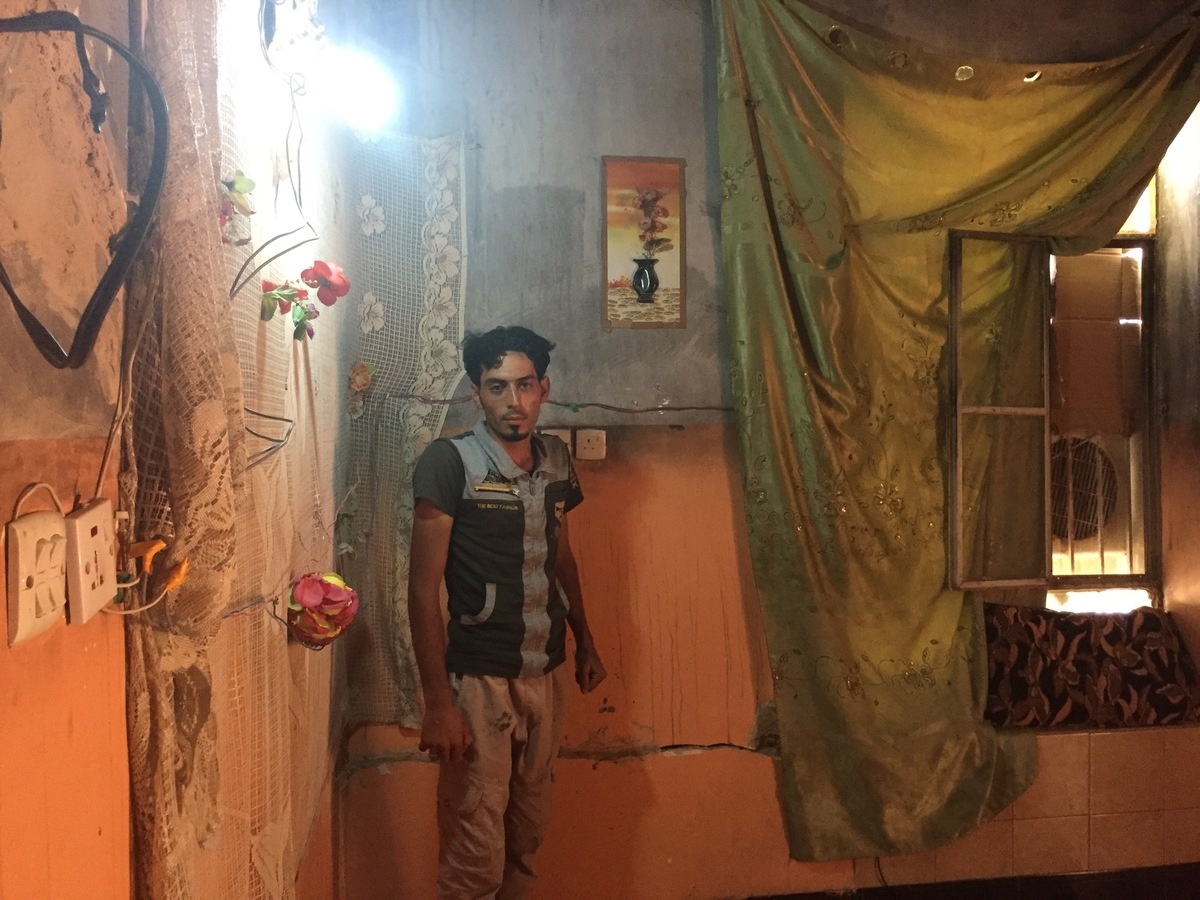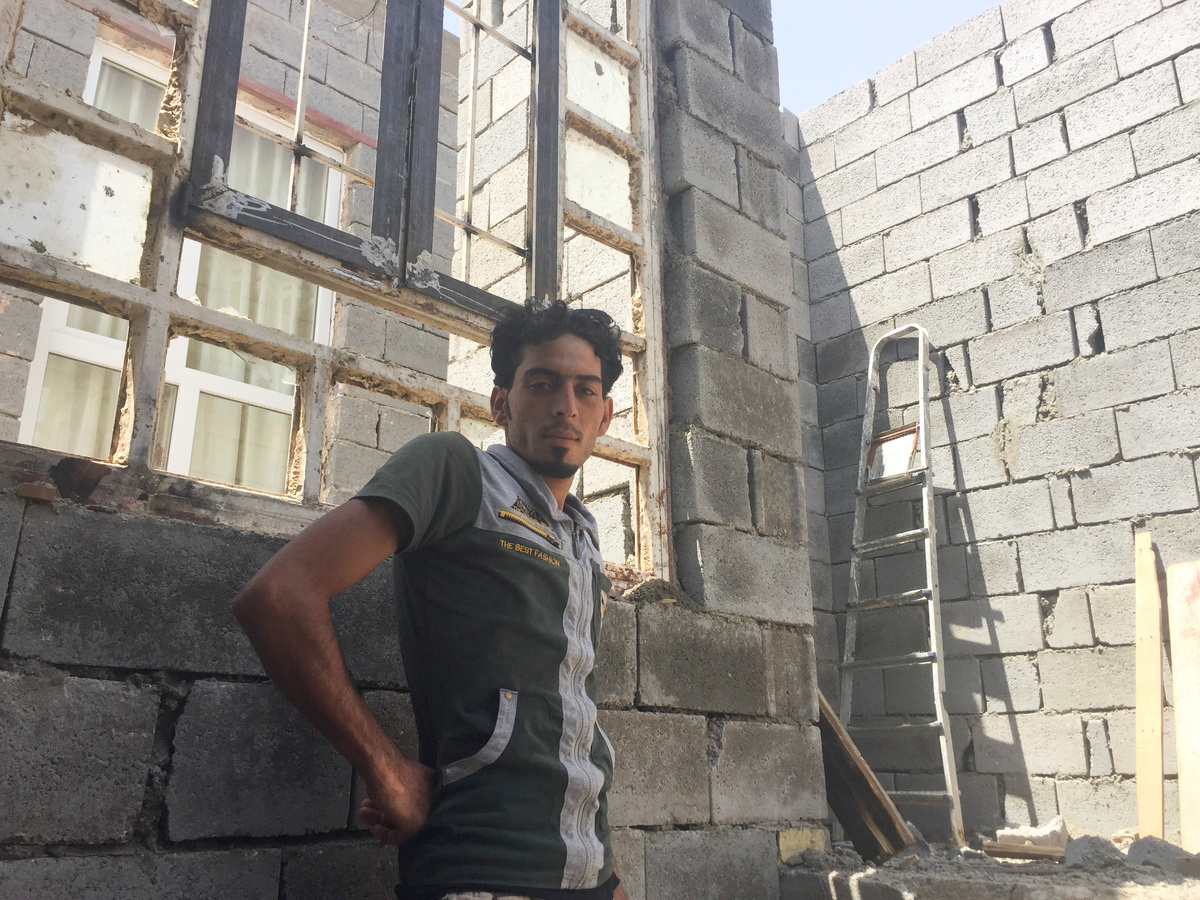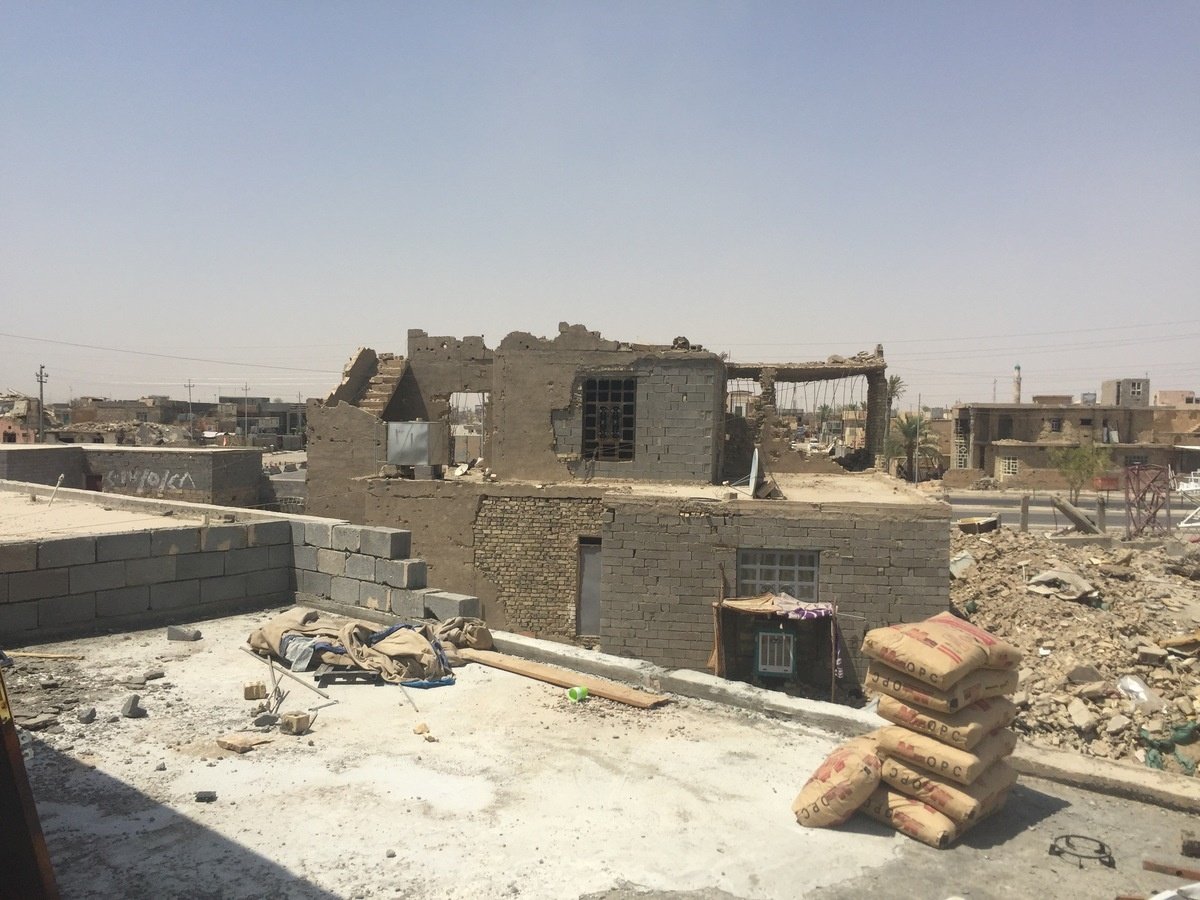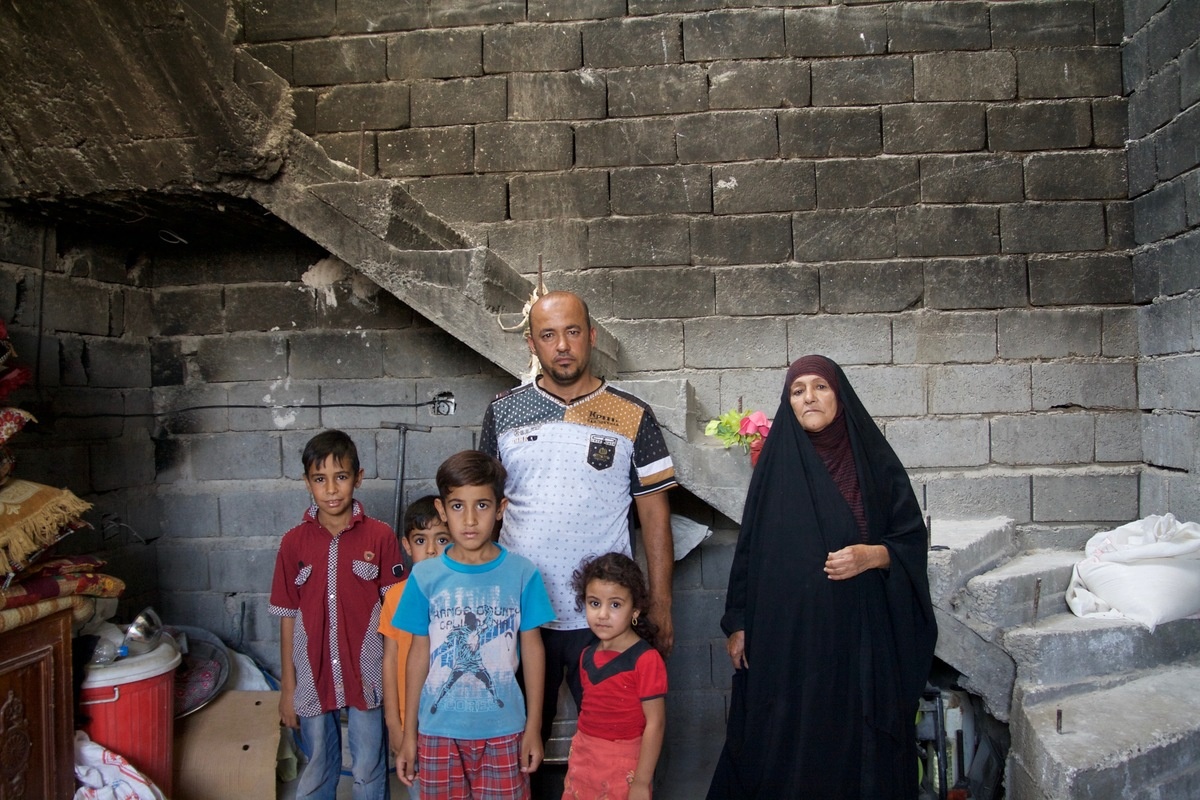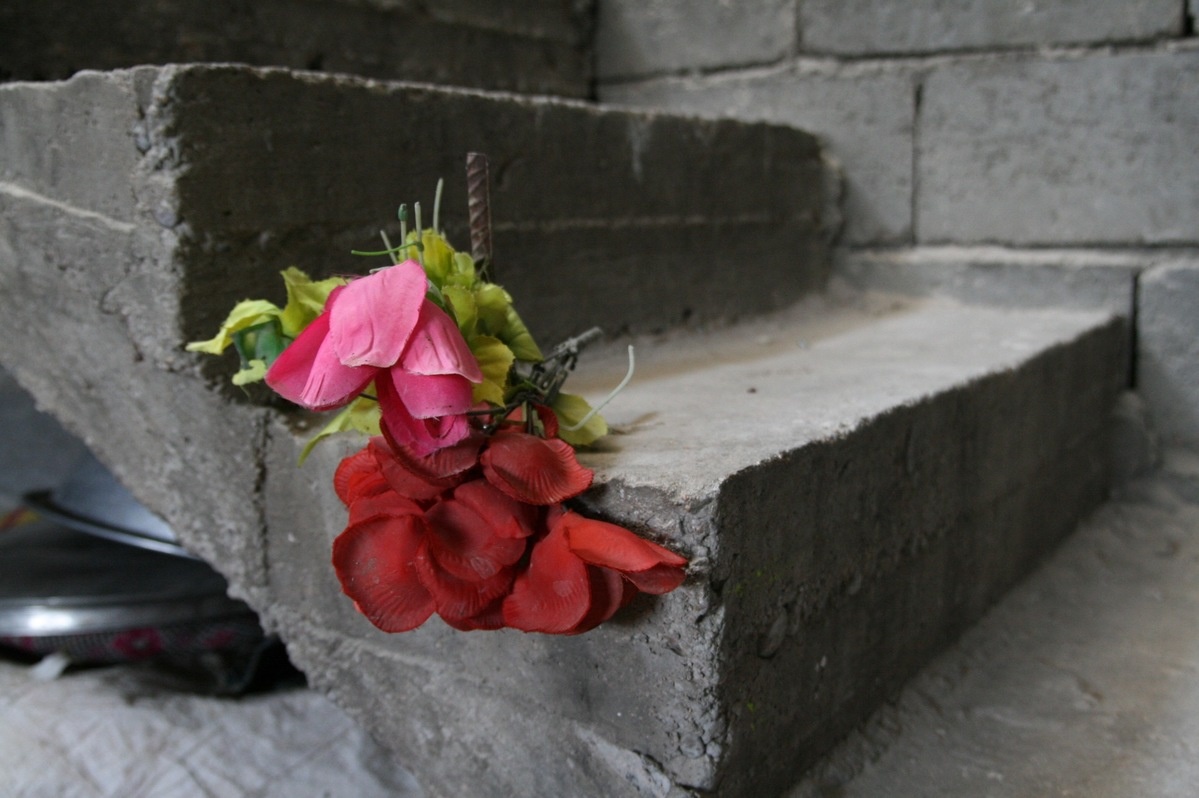Ramadi and Falluja returnees weigh scale of rebuilding task
Ramadi and Falluja returnees weigh scale of rebuilding task

Ibrahim Khalil, a 25 year-old labourer and crane-driver, fled Ramadi three years ago, as extremist groups first arrived in the city. He shows a neighbour's house, destroyed by explosives.
RAMADI/FALLUJA, Iraq – Ibrahim Khalil points to the half-destroyed building that used to be his family’s home in the Al Aramil neighbourhood of Ramadi, 110 kilometres west of the Iraqi capital, Baghdad. “Our house was full of life; we were very proud of it and wanted for nothing,” he says.
The 25-year-old labourer and crane driver fled Ramadi three years ago with his wife, mother and sisters when extremist groups arrived in the city. They left in haste – so rushed that they even left documents and some savings behind in their home.
The family spent the next two years living in a displacement camp in Bzeibiz, but when the government retook control of the city in early 2016, Ibrahim cautiously ventured back to assess the damage.
“All this area had been booby-trapped, and we had to pay bomb removal teams to clear our street. They found 13 explosive devices in this place alone,” he says gesturing to his home, which had half its side knocked out by explosions from similar booby-traps left in a now-ruined neighbour’s house.
“All the furniture had been taken, the money, documents – nothing was left,” he explains. One large room remains completely demolished, and part of the roof is open to the sky.
“All this area had been booby-trapped, and we had to pay bomb removal teams to clear our street."
Ramadi suffered extensive damage during months of fighting to retake the city, and even now – a year and half after the battle ended – much of the city still lies in ruins. Despite the devastation, 62,000 displaced families – equivalent to some 370,000 individuals – have returned to begin the task of rebuilding their lives.
Residents report that there has been little outside support for reconstruction efforts, with many families taking on significant debts in order to start rebuilding their homes.
UNHCR – the UN Refugee Agency – together with its NGO partners, has helped more than 500 families in Ramadi like Ibrahim’s with shelter repairs to a maximum value of US$5,000. Another 150 families whose homes were totally destroyed or uninhabitable have been given sturdy Refugee Housing Units as temporary shelters.
In Ibrahim’s case, the assistance from UNHCR has enabled him to re-plaster two rooms, replace broken windows and doors, and re-wire the electricity. But much remains to be done. “Lack of money is the main difficulty we face,” he explains. “I want to finish all repairs to the house. My son is just two-and-a-half, and I hope he won’t have to experience all the problems and difficulties we’ve been through.”
There is a similar picture in Falluja, some 50 kilometres east of Ramadi on the road to the Iraqi capital. Some 400,000 residents who were displaced by fighting to retake the city from armed groups have returned since the military operation ended just over a year ago.
While the destruction to the city as a whole was less severe than in Ramadi, many homes were left partially destroyed, looted or fire-damaged. On his return to the city seven months ago, former taxi-driver and father-of-six Ammar Sajit Mutlaq, 40, found his home still standing, but was devastated to find that the building had been set on fire.
"More help is urgently needed to help them rebuild their homes and lives and have confidence in the future.”
“This was a newly built house; everything was brand new and we lost it all,” he says. Even today, a faint smell of smoke still lingers inside, and the interior walls and roof remain blackened by the fire. “We were devastated. We were so proud of our home,” Ammar’s wife Bahiya adds.
UNHCR has helped Ammar and 600 other families in the city with shelter repairs, while a further 443 have received temporary housing units. “We are so grateful for the help we’ve received,” says Ammar, pointing to the re-plastered walls, new windows and repaired roof. “We could never afford to do this ourselves.”
Some of the residents of Ramadi and Falluja said their experiences contained lessons for those displaced during the battle for Mosul, who are now returning home. In Ramadi, which suffered similar levels of damage to Mosul, Ibrahim gave this advice: “Be patient. It won’t be easy. But try to stand on your own two feet. Things will be difficult, but everything that has begun must have an end.”
“Iraq still faces enormous challenges due to the massive internal displacement crisis and the huge scale of work needed to rebuild and reconstruct areas where major conflict took place,” said UNHCR Iraq Representative Bruno Geddo.
“While we focus on Mosul, we should not forget the struggles also facing people returning to their original areas in Falluja and Ramadi. More help is urgently needed to help them rebuild their homes and lives and have confidence in the future.”


